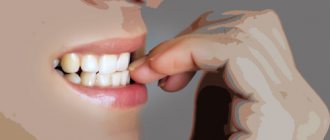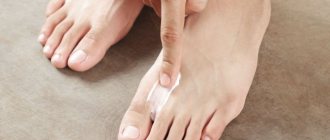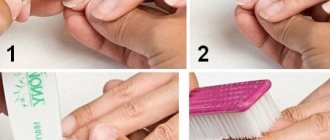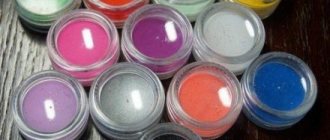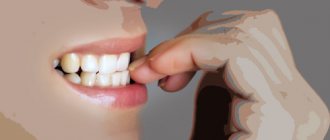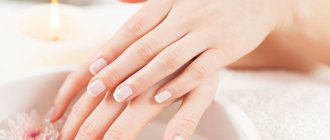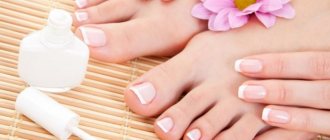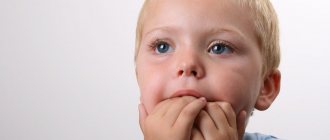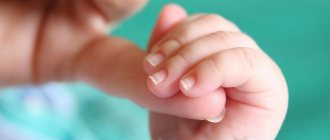This habit may be off-putting for some people, but most of the time it's not unusual. Some people perceive this as a sign of internal stress, anxiety or fear, while for others it is a sign of perfectionism, writes Tapoos.
Statistics show that a third of adults still cannot quit this habit!
Whether it is perfectionism or anxiety, it is advisable not to go to extremes. Nail biting can even disfigure your hands.
Psychologists highlight 14 reasons why adults and children may bite their nails:
Consequences of a bad habit
It is no coincidence that onychophagia is called a bad habit. It really does lead to negative consequences, including impacts on health.
- Deformation of the nail plate is inevitable - it becomes loose, covered with cracks, grooves, and begins to delaminate. The longer a person bites his nails, the more they become deformed.
- At the same time the cuticle , which performs a protective function, is damaged.
The extension procedure can solve these problems, but will require financial costs. In addition, most men do not use such a service. - Microbes. Dirt containing various bacteria also accumulates under the nails. When a person bites them, harmful microorganisms easily enter the body. This way you can become infected with worms or an intestinal infection. Bacteria also seep through microscopic wounds in the skin around the nail, which can cause serious inflammation.
This video talks about the unpleasant consequences of onychophagia.
Complications
Complications associated with the habit of biting nails:
- Sometimes children may bite their nails so deeply that they often bleed, which can damage their fingers or cause gum inflammation.
- Biting your nails with dirty hands can lead to infections and illnesses
- Severe nail biting could be a sign of anxiety problems that need to be addressed.
- Understanding why your child continues to bite their nails is half the solution to the problem.
Why do people bite their nails? Sometimes this habit appears at a later age. Then a psychologist can come to the rescue. This disease is called onychophagia.
Causes
The most common reason why you notice bitten nails in both children and adults is neuroses. Increased anxiety and prolonged exposure to stress lead to the emergence of this habit. Additionally, during periods of intense concentration, you may also unconsciously move your hands to your mouth. It is for this reason that many employees who work at a computer can see chewed nails only on their left hand, while the right hand is occupied with the mouse.
However, in some cases, people begin to bite their nails simply out of boredom, because there is “nowhere to put” their hands. Regarding children, we can say that they often copy the habits of adults. Take a closer look to see if you or any of your family members are biting their nails. Perhaps the child repeats after you and you need to get rid of the habit yourself before it takes hold in the child. After all, the sooner a habit takes hold, the more difficult it will be to fight it.
However, if the habit did not arise in childhood, but in adulthood and quite suddenly, then it is most likely a sign of increased nervousness. Try to understand at what point it arose and consult a psychologist for advice.
Why do people bite their nails
Nail biting is an underrated habit, and its exact cause is controversial. Causes of onychophagia include psychological, acquired, or familial factors, although it is unknown whether family factors are associated with the problem, such as nail-biting habits in other family members or a genetic predisposition.
Onychophagia can sometimes affect people who are psychologically stable, but it is usually a sign of loss of control over difficult tasks. The main psychological factors that are associated with this behavior are stress, nervousness, anxiety and depressed or bad mood.
On the other hand, lack of stimulation (low activity, boredom) can also be a trigger for nail biting. Hunger and low self-esteem are known to be possible causes of this bad habit.
Onychophagia is considered an automatic, unintentional behavior. In adulthood, researchers suspect alternatives to nail biting include smoking or chewing gum . One theory is that onychophagy is an extension of the thumb sucking habit. Conclusion: biting your nails is a bad habit.
Adviсe
Tools, Tips, and Tactics to Stop Nail Biting
- Replace nail biting with a good habit or fun activity: teach your child to play with a stress ball, fidgeting hand, or silly putty instead. This will help keep his hands busy and away from his mouth. Gnawed nails - nails that are chewed photo:
- The following are methods and products to stop nail biting, but they must be respectful of others around the child. For example, children with sensory issues will never be comfortable sitting next to a child chewing gum.
So, the child bites his nails. The psychologist’s advice is as follows:
- After weighing the pros and cons and keeping the needs of others in mind, below are some tools, tips and tactics you can use to prevent nail biting:
- Using a bitter-tasting product applied to the nails: nail polish, lotions, perfumes, or homemade potions made from pepper or soap.
- Apply a bitter substance such as ginger oil, which is easily obtained by soaking ginger for two weeks in olive oil.
- Place the patches on your nails.
- Engage with your child and focus on fun activities.
- Reinforce positive behavior by praising it.
- Place a rubber band around his wrist and grab it whenever he has the urge to bite his nails.
- Can create a reward system to motivate the child for every small step.
